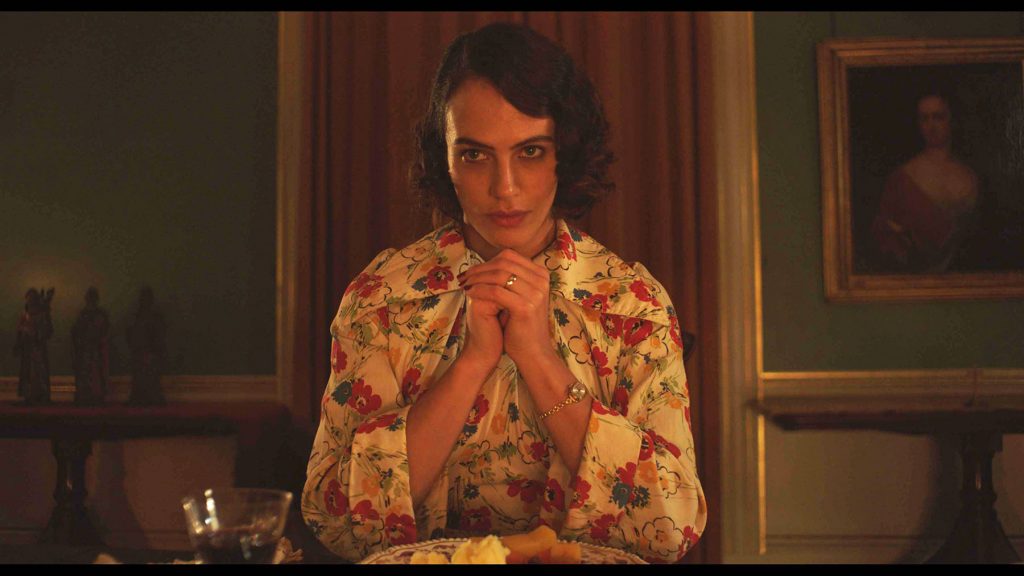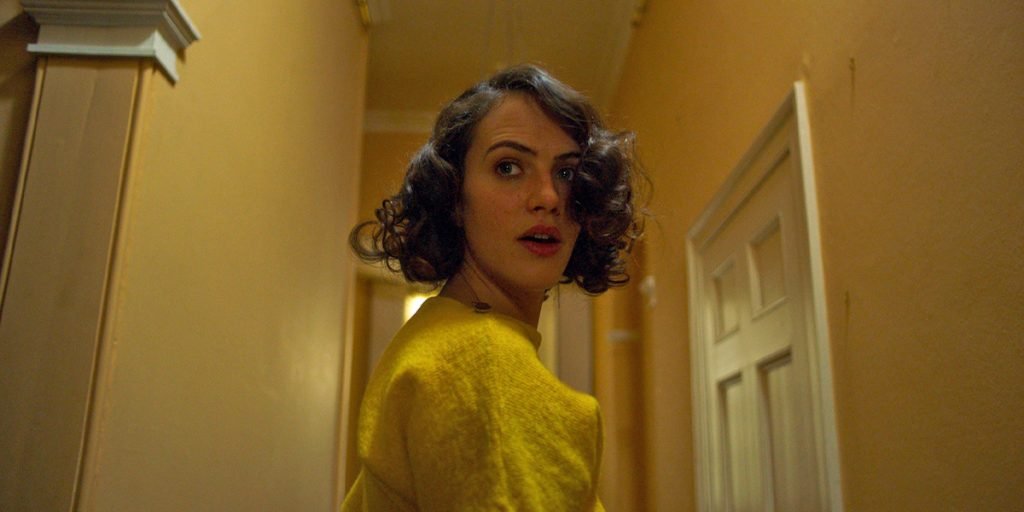The Banishing offers very little new or revolutionary, but remains relatively enjoyable and features impressive performances and sumptuous production design.
In the 1930s, as the threat of World War Two looms over England, Marianne, played by Jessica Brown Findlay (Downton Abbey, Harlots), and her daughter join her husband, a reverend, in his new manor. As the days progress and the backstory of Marianne is built, it quickly becomes clear that all is not quite right. If the premise sounds familiar, that’s because it is. The Banishing does little to reinvent the haunted house genre, but simultaneously makes no apologies for this, a quality that would have been more admirable if it wasn’t so average in most of its elements. Films do not have to revolutionise a genre like this – the mere concept of a haunted house will always terrify audiences – but there does need to be some substance to it if it’s going to be generic, be it in the horror itself, the atmosphere, the characters, and so on. The Banishing is by no means bad in any department and even impresses with its lavish production and set design as well as in the majority of the acting, but it ultimately feels too empty to be memorable and will quickly be forgotten amidst a host of other, better films in the genre.
There are some memorable performances in The Banishing. Findlay gives Marianne a determination and strength in the face of adversity and mistreatment at the hands of the male characters, whilst also capturing the intense paranoia perfectly. Marianne’s relationship with her child, Adelaide (a charismatic and spooky Anya McKenna-Bruce), is believable thanks to the chemistry between the actors, which is necessary considering the main plot point falls around the strength of their mother-daughter bond.
The supporting cast are generally impressive too. John Lynch (Angel Baby, Sliding Doors) has limited screentime as Bishop Malachi, but manages to instil some of the main feelings of dread and menace experienced in The Banishing. Malachi, in a position of power as a bishop but the vilest character in the film, threatens to be the strongest character but is let down by the screenplay and plot that surrounds him; simply put, it just doesn’t give him enough to work with, despite seemingly wanting Malachi to be a driving force of the film. It is a testament then to Lynch’s acting that, despite these weaknesses, Malachi is still memorable once the credits roll.

The most striking performance however, for both good and bad reasons, is Harry Price, played by an eccentric Sean Harris (best known for his villainous role in the Mission Impossible films). Harris’ acting ranges from the sublime to the questionable, his accent an odd English that feels forced at times and his line delivery sometimes moving into the comedic. The character of Harry Price, an eccentric occultist, suits this melodramatic acting and for the most part, Harris’ performance works. The acting as a whole in The Banishing is strong, so it is a shame that other parts work to a lesser degree.
It is always difficult and questionable to call a film lazy, but The Banishing is occasionally guilty of having underdeveloped and empty parts. The backdrop of fascism spreading its evil throughout Europe is touched upon frequently, yet lacks the development such a weighty, powerful subject needs. The subsequent reveal near the end of The Banishing, which sees a character travel to Germany, exposing them to the audience as a Nazi sympathiser, is jarring to say the least. It’s an uncomfortable lurch of setting and plot which feels unnecessary. At another point in the film, Harry Price shows his ‘investigation wall’ into the strange happenings at the manor to Marianne, which amounts to little more than a few pictures and a couple of scrawled notes, despite his claim that the research is extensive. It may seem minor, but it is little details like this that remove the audience from the film and lessen any credibility or tension that has previously been built up.
All of this is surprising when a large portion of the rest of The Banishing has a dense, living quality to it. The manor is a wonderful setting full of large, looming rooms and long, dark corridors, all of which ensure the building is as much a character as the people. The production design, too, stands out. A particularly sumptuous moment sees Marianne walking through the empty manor into a room lavishly decorated with floral wallpaper which matches her own floral-patterned dress perfectly. It is an example of The Banishing at its best, creating a time and a place impressively. The weaker moments though, as small as they may be, detract from the strengths and undo the evidently hard work that has been put in by the production team.
Ultimately, The Banishing’s biggest weakness is in its horror. A couple of jump scares and some creepy moments aside, there is little to really scare you or keep you thrilled and tense. A lot of The Banishing is too slow, which works well to develop the characters and when the plot touches on themes of women’s liberation, but severely lessens the fear element of the film. Horror films don’t need to terrify the audience in the most obvious sense but need something striking within them: slow building dread, excruciating releases of horror, resonant and terrifying themes, to name a few. The Banishing has inklings of these but never anything more. There are many, many films in the haunted house horror genre and it’s not true to say The Banishing is unwatchable when considered in their presence; instead, it is a well-made film fitting of a rainy, weekday, late night watch, rather than a primetime slot on a weekend.
The Banishing will be released in U.K. cinemas and on digital platforms on March 26th, 2021.

